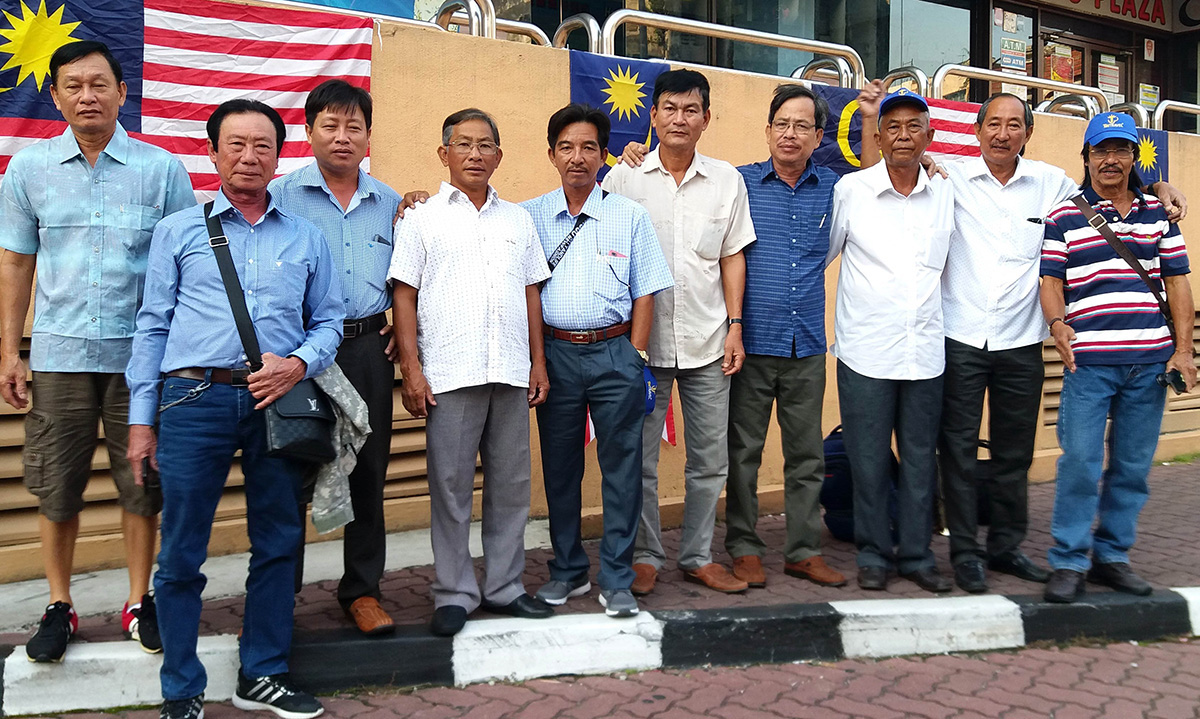Cho Lach, a rural district in the Mekong Delta province of Ben Tre, is known for its seedling and flower production.
Farmers in Cho Lach have a man to thank for their agricultural success: Dr. Bui Thanh Lien, head of the district’s bureau of agricultual and rural development.
Liem’s many published works and field experiements have transformed the way local farmers cultivate, significantly improving their production and income.
His approachable personality and willingness to get his hands dirty have earned him a special place in the hearts of many Cho Lach residents who, in the words of the district’s vice-chairman Pham Anh Linh, consider the man the pride of the locale.
Choosing hometown
After graduating from Can Tho University with a bachelor’s degree in agronomy in the 1980s, Liem was offered a teaching job there.
However, empathy for the people in his hometown who were struggling to make ends meet with their outdated farming techniques encouraged him to turn down the offer and return to Cho Lach.
Taking office in a small local government position, he drafted a new development plan for the district’s garden-based economy and convinced his leaders to put him in charge of its implementation.
Liem’s scheme helped educate local farmers on the best practices to tend to their soil and pick which plants to grow for the highest yield.
“Travel was a challenge as the roads were unpaved and the bridges were rudimentary, and our primary mode of transport was by water,” Liem reminisced about his early days.
He also introduced locals to a new grafting technique that increased success rates to up to 90 percent and allowed families even without vast plots of land to live comfortably thanks to income from breeding plants and flowers.
Cho Lach now produces over 30 million seedlings and more than 10 million ornamental flowers every year, which are sold to all parts of Vietnam and even exported to Laos, Cambodia, Malaysia, and the Middle East.
The ‘midwife’ of rambutans
Cho Lach farmers like referring to Dr. Liem as the ‘midwife’ of rambutans, a nickname with an interesting history.
In 1999, rambutan plants across the district suffered from a strange ‘disease’ that stopped them from bearing fruit.
Many farmers began chopping down their ramutan trees en masse, thinking they were unsalvageable.
“From a scientific standpoint, if prawns and fish could change their gender, there had be a way to achieve the same result in fruit-bearing plants to manually kickstart the pollination process,” Liem thought.
He pitched his idea to researchers at Can Tho University and they began experimenting on creating ‘male’ flowers from female ones for rambutan trees.
The scientists’ solution, a sprayable product known as Ramale, helped save 1,400 hectares of rambutan gardens on the verge of being destroyed.
|
|
| This provided photo shows Dr. Bui Thanh Liem (fourth right) and Vietnamese farmers on a trip to Malaysia. |
Escaping the vicious cycle
Farmers in Vietnam are usually caught in the vicious cycle of having to sell their crops at a dirt-cheap price when the yield is high, and having no crop to sell when the price is high.
To solve this dilemma, Liem explored a technique that helps rambutan and durian plants reliably bear fruit even when they are not in season by controlling the amount of water provided to the plants.
This helps put farmers in control of harvest time to maximize their profit.
In 1995, Liem was offered a promotion to work in the provincial government after earning back-to-back master’s and doctoral degrees in the same year.
However, the official refused, preferring to stay and contribute to his hometown as head of Cho Lach District’s agricultural division, a post he has held for four tenures straight.
To Liem, the PhD degree was not a means to climb the political ladder but merely a source of new knowledge for his job.
Liem now organizes frequent trips to Thailand and Malaysia for local farmers to learn from the best farming practices of their Southeast Asian neighbors.
Like us on Facebook or follow us on Twitter to get the latest news about Vietnam!





